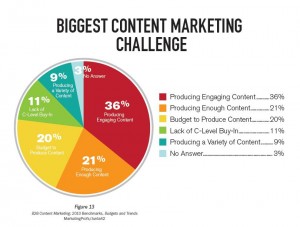Many organizations have a laser-like focus on technical skills—knowledge and capabilities specific to a set of business functions and operations. While technical skills such as programming knowledge or being able to use certain types of software may be important for jobs like being a software developer or an editor for a publication, there’s more to a successful team than just having people who have specific functional knowledge and skills. Leaders in an organization need to have a strong set of soft skills.
These skills can be the deciding factor between a highly productive team that consistently meets goals and a team that continuously struggles.
But, which soft skills should one focus on? And how?
Some of the most critical soft skills that organizations should help employees develop include:
1: Emotional Intelligence (EQ)
Emotional intelligence, or EQ, can be broadly described as a person’s ability to objectively recognize their own emotional state (self-awareness) and the emotional states of those around them and use that knowledge to build relationships. A person who has a high emotional intelligence is generally better at picking up on contextual cues during conversations (such as body language, tone of voice, or specific word choice), and using that information to guide their interactions.
This can be crucial for employees who need to work well with others, as it can help to build relationships and prevent misunderstandings or diffuse potential conflicts between team members.
Many soft skills could be considered subsets of EQ, or at least are closely related to it. However, as a basic building block, emotional intelligence deserves special mention.
2: Active Listening
A key skill for any leader or team member is the ability to listen as well as they speak. Active listening skills are a key part of understanding and empathizing with others—making them an important part of demonstrating emotional intelligence.
Active listening means more than being silent while others talk.There are three skills that are considered part of active listening, including:
- Empathizing. Demonstrating an understanding of the other person’s situation and why they are behaving the way they are
- Questioning. Questions are used to collect relevant information and, more importantly, engage the other person and help make the discussion a two-way conversation
- Paraphrasing. Restating what others have said in your own works. It demonstrates understanding, helps avoid misunderstanding, and show others that the active listener is paying attention.
3: Building and Sustaining Trust
Being able to establish trust is a core soft skill—and one that ranks among the top five most critical competencies for any leader. Trust is a critical ingredient for effective teams in any organization because it facilitates cooperation.
Building trust can take time. Employees must establish credibility, put the needs of others ahead of their own, keep their promises, consistently honor their commitments, and accept responsibility for their actions.
Organizations can help employees develop trust by:
- Celebrating Wins as a Group. While individual accomplishments should be recognized, celebrating wins as a group helps everyone feel that their contributions are important, and creates a system that rewards group efforts rather than self-aggrandizement.
- Creating Opportunities for Personal Interaction. For many, a coworker is just a stranger who’s on the same payroll. However, give two people chances to connect with each other on a personal level, and that random coworker becomes Dave, who has a wife and two kids and who enjoys classic rock. Having people interact with each other humanizes team members to one another—something that celebrating wins as a team can help with, but also can be done by organizing in- or out-of-office get-togethers, parties, and other events. Regular interaction also helps build credibility as team members have an opportunity to see their colleagues capability
- Encouraging Individuals to Share Concerns. If a problem goes unheard, it can create extra stress for the affected employees—slowly eroding their trust in their teams and the organization as a whole. Creating a culture where employees are encouraged—and even expected—to voice their concerns is a key part of building trust.
- Clarifying Shared Goals. Everyone on the team should have some common ground where they know they all have some “skin in the game.” This helps keep employees action-oriented and working together rather than separately.
4: Flexibility
When situations change in sudden and unexpected ways, how well a person responds to the new situation is important to individual and team effectiveness. People who are more agile and demonstrate flexibility are able to take new situations in stride and adapt their behavior, plans or working strategies as needed.
Flexibility requires a person to be able to:
- Objectively assess a situation;
- Evaluate the challenges involved;
- Weigh these challenges against their goals; and
- Apply different skill sets and behaviors based on their assessment.
Assessing and Developing Soft Skills
Being able to identify employees with strong soft skills can be a key part of a succession management program because they are often strong predictors of future success in a leadership role.
360 feedback is one tool that can help determine the extent to which leaders and team members have these skills. 360 feedback gathers different perspectives about an employee’s ability to use the skills. Performance reviews and informal feedback from bosses, coaches and mentors can also provide valuable insights to enhance self-awareness and development planning. Development plans should include specific actions to improve performance including skill training sessions, on the job opportunities to practice their soft skills in their day-to-day job setting, and one-on-one coaching and feedback..
Learn more about assessing and developing soft skills to help with your team building and leadership development efforts by contacting OnPoint Consulting today!
Business & Finance Articles on Business 2 Community(41)






